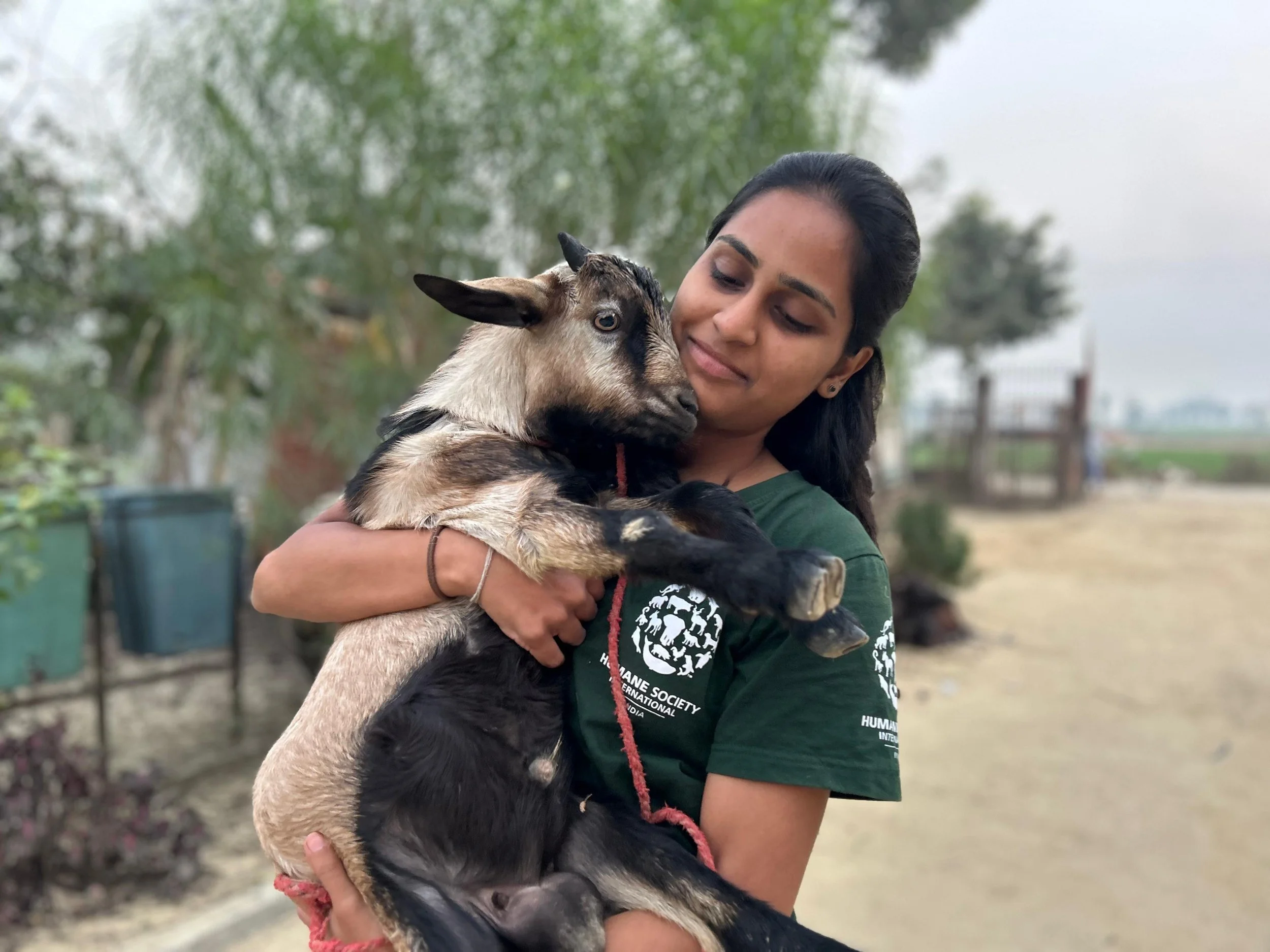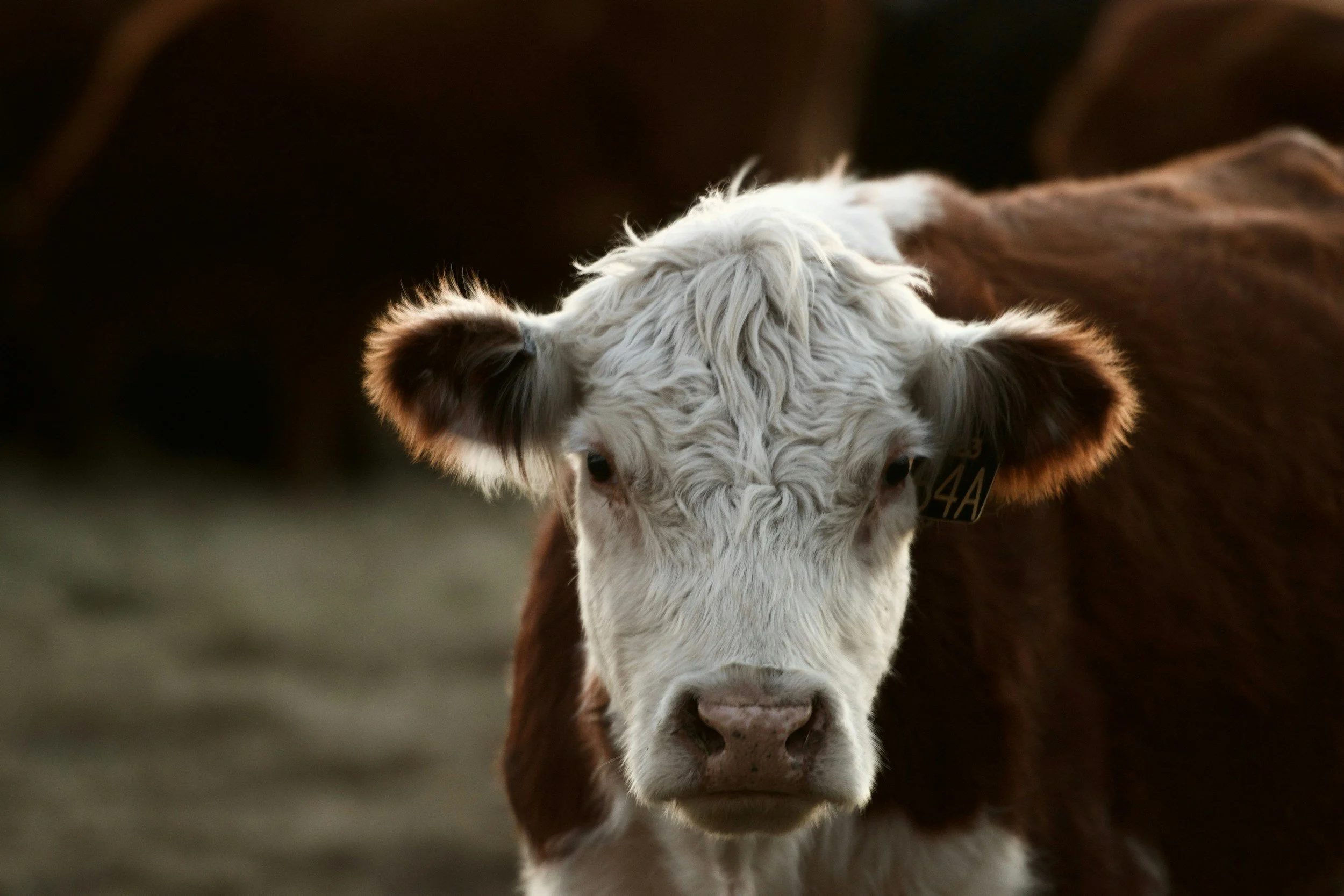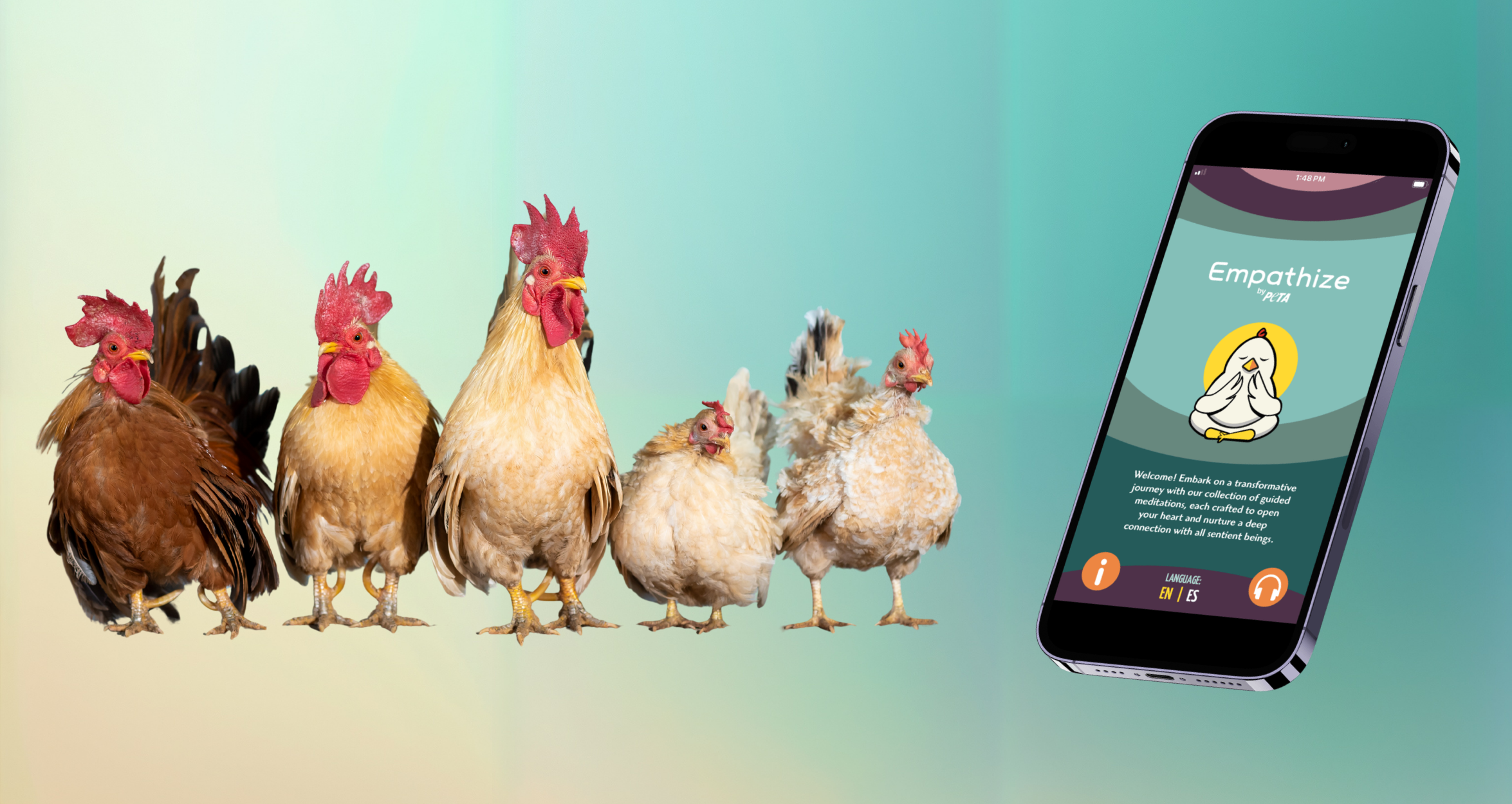“An appalling bloodbath”: over 200,000 animals killed in mass sacrifice as part of infamous festival
The religious event has been condemned for its “unfathomable” scale of animal suffering, with devotees beheading thousands of buffalo, goats, rats, and more.
Buffaloes in the arena before the sacrifice at this year’s Gadhimai Festival. Credit: HSI India
Campaigners are calling for an end to an infamous festival where devotees take part in the mass sacrifice of animals.
The Gadhimai festival, which takes place every five years in Bariyarpur village in the Bara district of Nepal, finished its latest iteration earlier this week.
But the month-long Hindu celebration has long drawn controversy and condemnation as it culminates in the ritual slaughter of hundreds of thousands of animals.
As part of the sacrifice, devotees enter an arena and take part in beheading water buffalo. Outside the arena, many more goats, pigs, ducks, and rats are also decapitated.
A baby buffalo being prepared for sacrifice during the Gadhimai Festival. Credit: HSI India
At past ceremonies an estimated 500,000 animals were killed in 2009, with that number dropping to around 250,000 animals in both 2014 and 2019.
Ahead of this year’s event the Gadhimai Temple urged devotees to bring animal sacrifice numbers back up to 500,000.
According to religious beliefs, Bhagwan Chowdhary who founded the temple around 265 years ago, dreamt that the goddess Gadhimai asked for a human sacrifice in return for freeing him from prison. Chowdhary offered an animal instead and this has been repeated every five years ever since.
“I’ve never seen anything as upsetting and disturbing as what I have witnessed at the Gadhimai sacrifice,” said Arkaprava Bahar, a campaigner at the Humane Society India. “The scale of the animal killing is unfathomable, there are animals being beheaded everywhere you look and pools of bright red blood on the ground wherever you tread.”
HSI India along with People for Animals are among the groups which have been urging the Nepalese government for over a decade to ban the festival’s animal sacrifice.
Campaigners raising awareness against the Gadhimai festival. Credit: HSI India
This year campaigners conducted door-to-door awareness campaigns, distributed thousands of local language pamphlets, and held a press conference with spiritual teacher and author Acharya Prashant to urge devotees not to sacrifice their animals.
“Devotion should inspire compassion, not cruelty. Slaughtering animals in the name of the divine diminishes the spirit of worship”, Prashant told the conference.
Estimates say that between 250,000 to 500,000 animals were slaughtered across the final two days of this week’s festival.
The majority of the sacrificed animals are said to be illegally transported from India into Nepal.
HSI India has been helping to assist border police in intercepting animals illegally transported for slaughter, and this year their combined efforts saved the lives of more than 750 animals, including 74 buffaloes, 347 goats, 328 pigeons, and two chickens.
A goat rescued by HSI India at the Indo-Nepal border checkpoint ahead of this year’s Gadhimai festival. Credit: HSI India
The pigeons have already been safely released back into the wild, while permanent homes are being found for the other animals.
What are the laws surrounding the festival?
Campaigners have welcomed the work being done by the border forces to intercept illegally-imported animals, but have urged the government of Nepal to ensure that future Gadhimai festivals do not feature animal sacrifices.
In September 2019, the Supreme Court of Nepal ordered an end to live animal sacrifices at Gadhimai and urged authorities to create a plan to phase out this practice nationwide.
But welfare groups say this legal ruling has been widely ignored.
“The government in Nepal has had five years to comply with the Supreme Court judgment banning sacrifice but it has failed to take any action and instead has promoted the sacrifice,” says Sneha Shrestha, president of the Federation of Animal Welfare of Nepal.
Shrestha explains that this year’s festival increased the height of the wall around the arena where sacrifices take place, and also deployed police forces around the compound.
We Have A Favor To Ask…
Species Unite amplifies well-researched solutions to some of the most abusive animal industries operating today.
At this crucial moment, with worldwide momentum for change building, it’s vital we share these animal-free solutions with the world - and we need your help.
We’re a nonprofit, and so to keep sharing these solutions, we’re relying on you - with your support, we can continue our essential work in growing a powerful community of animal advocates this year.







